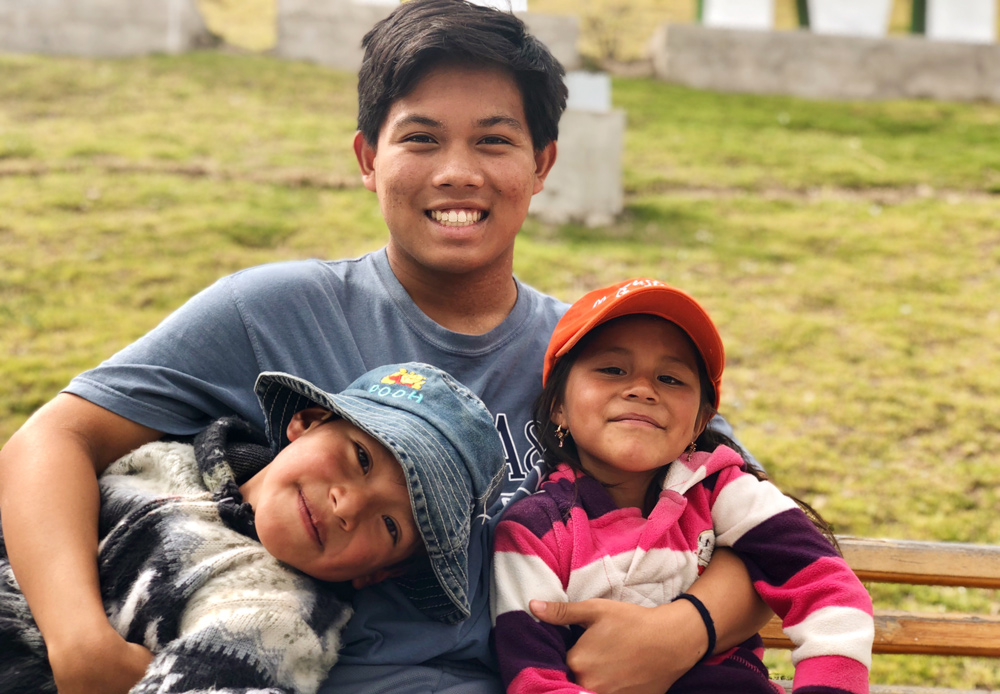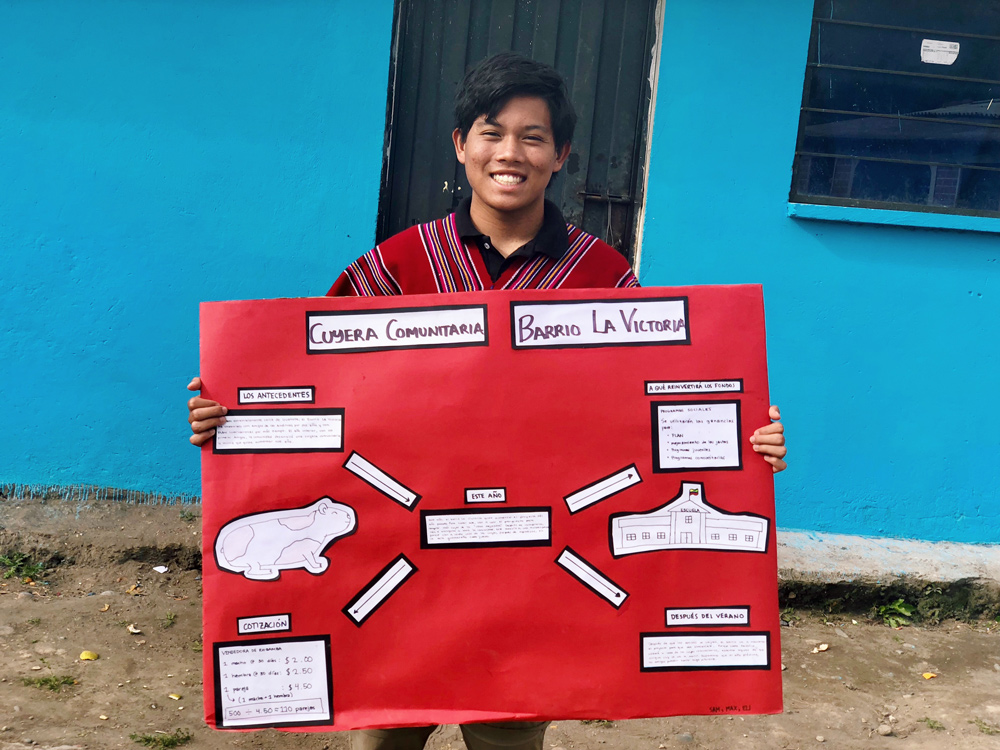Millions of high school students are unaware of how we have the power to create change in our communities. I was one of them.
We find ourselves trapped in monotonous daily routines and there simply isn’t a lot of time to think about changing the world or making a difference. AMIGOS, however, taught me that we are more capable than we think.
Before AMIGOS, I felt like the average American teenager: I grew up in Houston and attended elementary and middle school not far from my neighborhood. I participated in school, swim team, and violin, and although I excelled academically and musically, I didn’t feel like I was special. In fact, the only thing that made me different was my Filipino heritage. But in the grand scheme of things, I didn’t feel unique at all.
Fast forward to the beginning of my sophomore year. One of my classmates presented a slideshow about her trip to Costa Rica with Amigos de Las Américas. I marveled at her pictures: there were photos of her with her host family as they rolled tortillas together, photos of her and other volunteers in farm clothes working in a national park. Within twenty-four hours, I had applied to the program, and in a few weeks I was notified that I would be spending my summer in Nicaragua!
Before I boarded the plane, I had to go through chapter training. During training, we discussed our goals and what we thought it meant to be a volunteer in a foreign country. We learned about sustainable community development and how to be respectful volunteers—there were many intricate pieces in the puzzle of foreign service.
For lack of better words, my first few weeks in Nicaragua were difficult: the culture was different, the language barrier made communicating with my host family harder than I expected and on top of that, you can imagine my surprise when I asked my host mother “¿dónde está el baño?” and she pointed to a concrete latrine surrounded by plastic wrap and four wooden posts. Everything was different from the life I was used to in the United States.
 But, as an AMIGOS volunteer you quickly realize that you have to step up and be independent. My mom and dad weren’t there telling me that I needed to wake up early every day to help my host family make tortillas, they weren’t there telling me that I needed to plan my daily activities with the schoolchildren the night before, or how to organize a meeting with adults. I was left to develop solutions on my own—and this independence is why AMIGOS had such a profound impact on my life.
But, as an AMIGOS volunteer you quickly realize that you have to step up and be independent. My mom and dad weren’t there telling me that I needed to wake up early every day to help my host family make tortillas, they weren’t there telling me that I needed to plan my daily activities with the schoolchildren the night before, or how to organize a meeting with adults. I was left to develop solutions on my own—and this independence is why AMIGOS had such a profound impact on my life.
Our community project started off smoothly, and we planned to renovate the community center so that the children would have a place to be vaccinated. However, we found out that in reality, the community was extremely divided: half of the residents wanted to repair the center while the other half wanted to repair the school’s soccer field. It was an unexpectedly frustrating experience, but it illustrated what it’s like to work in real life: things don’t often happen as planned, and that’s an incredibly important part of the process.
After seven unforgettable weeks in Nicaragua, life returned to normal as school began. Still, I wanted to stay involved in the organization so I applied to be a trainer for the Houston Chapter. I wanted to make the transition easier for the next group of students as they were to begin their own AMIGOS adventures. And as training reminded me more and more of my first summer in Nicaragua, I realized that I wanted to return to Latin America, doing what I loved, so I signed up for a 2nd summer with AMIGOS in Chimborazo, Ecuador.
My experience in Ecuador was so different from Nicaragua. As I improved my Spanish, I was also able to learn words and phrases in Kichwa, the indigenous language of the region. The community project was also completely different. My partners and I worked with the community to establish a micro-enterprise centered around a guinea pig farm. (Guinea pigs are traditional sources of protein in South America.) It was amazing to work with community members on a project that would provide a sustainable source of income long after my partners and I left.
 My summer in Ecuador flew by, and before I knew it, I was stepping out of the airport to greet my parents. Now I’m not sure if I’ll return for a third AMIGOS summer, but I’m starting to feel the AMIGOS buzz again already. If all goes according to plan, I will be attending college and double-majoring in Economics and Latin American Studies next year. One day I would even like to pursue a career involving these emerging, Latin American markets.
My summer in Ecuador flew by, and before I knew it, I was stepping out of the airport to greet my parents. Now I’m not sure if I’ll return for a third AMIGOS summer, but I’m starting to feel the AMIGOS buzz again already. If all goes according to plan, I will be attending college and double-majoring in Economics and Latin American Studies next year. One day I would even like to pursue a career involving these emerging, Latin American markets.
AMIGOS helped me find my voice and my purpose in life. AMIGOS isn’t just a summer volunteering program, it is a path that leads you to appreciate other peoples and cultures, a journey that develops you as a leader, an adventure that makes you realize that you are more capable than you think. AMIGOS isn’t about changing the lives of others, AMIGOS is about realizing that we have the ability to change our own lives, to find our own voices, and to become the best versions of ourselves.
Thank you.
Eli Samson is a senior at Carnegie Vanguard High School in Houston, Texas. He spoke at the Breakfast to Benefit AMIGOS on October 24, 2018 at Houston Country Club and submitted a version of his speech to our annual blog contest. His submission was the winning entry.

